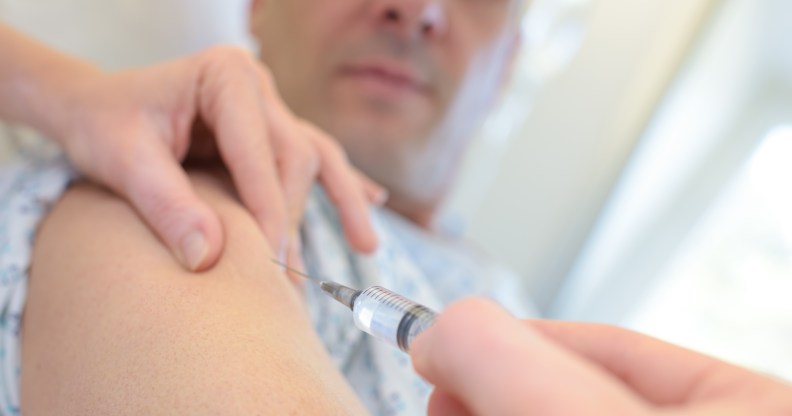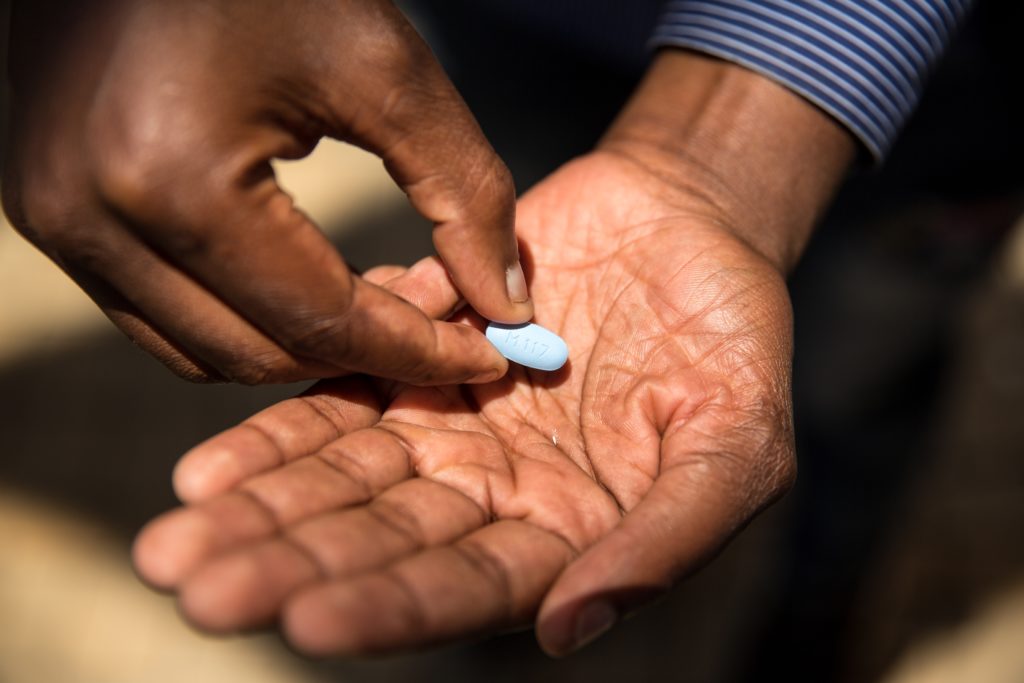Back to the drawing board for scientists as yet another experimental HIV vaccine has failed to pass clinical trials

Trials are ongoing for potential HIV vaccines. (Envato)
The latest attempt at a HIV vaccine has failed, as researchers announced Monday that they have halted a major $104 million trial in South Africa.
Researchers from the National Institutes of Health, of the US Department of Health and Human Services, stopped the NVTN 702 trial, which enrolled more than 5,400 people across four years.
Monitors based in South Africa, a country pelted with one of the highest HIV rates in the world, checked how the study was progressing only to find that 129 people had acquired HIV, compared to 123 given a dummy jab, the NIH said in a news release.
One leading British HIV advocate told PinkNews that while this trial has petered out, two other large studies are in the pipeline and “we expect to hear early results from these within the next year or so”.
What was the HIV vaccine?
The experimental jab was loosely based on an earlier study that developed a vaccine with modest protection against HIV, the RV144 clinical trial in Thailand.
Researchers beefed up the shot and adapted it to the strain of HIV common in South Africa.
However, experts expressed “deep disappointment” when preliminary data showed more vaccine recipients acquired HIV than those receiving placebo jabs.
“An HIV vaccine is essential to end the global pandemic and we hoped this vaccine candidate would work. Regrettably, it does not,” said NIH infectious diseases chief Dr Anthony Fauci.
‘There are other vaccines being studied which are at a similar stage.’
Matthew Hodson, NAM aidsmap executive director, explained: “There was a lot of optimism associated with this particular vaccine, because it built on work that had seen a 31 per cent reduction in HIV risk.
“It’s extremely disappointing that it did not work. It’s a long, laborious and expensive process to get to Phase three human trials of any vaccine or treatment.”
Scientists have tirelessly searched for a way to hinder the disease, of which there are several strains, for decades. But hurdles have been faced in pushing a vaccine across several regulatory stages.

(Daniel Born/The Times/Gallo Images/Getty Images)
These phases are, Hodson said, crucial to ensuring that the treatment is “safe” for humans. But activists and researchers must exercise caution as they “may yet fail”.
Nevertheless: “There are other vaccines being studied which are at a similar stage.
“The Imbokodo study (HVTN 705) is currently working with thousands of women in southern Africa and the Mosaico study (HVTN 706) is seeing whether a four-shot regimen will prove to be effective for a large cohort of gay and bisexual men and trans women.
“We expect to hear early results from these within the next year or so.”
Hodson stressed that the first wave of effective vaccines for HIV is “still years away”, and that “there remains a need to optimise our use of other prevention methods” as a result, such as PrEP. A crucial drug treatment that prevents acquisition.
“Even if we could find an effective vaccine today, due to the various regulatory hurdles that would still need to be cleared, it would probably take five years before it would be available worldwide.”

